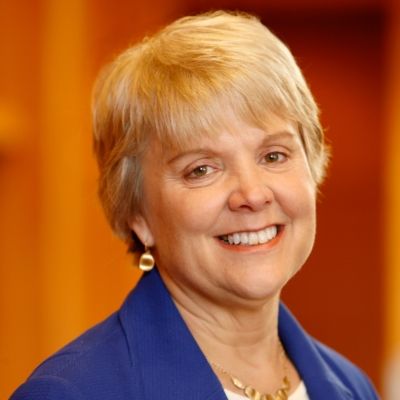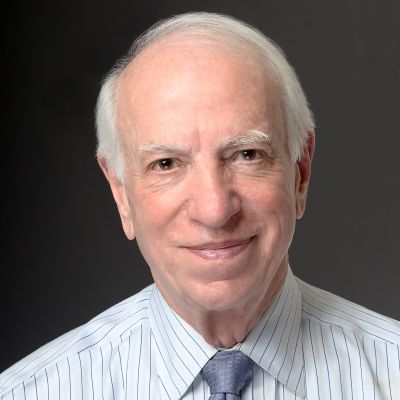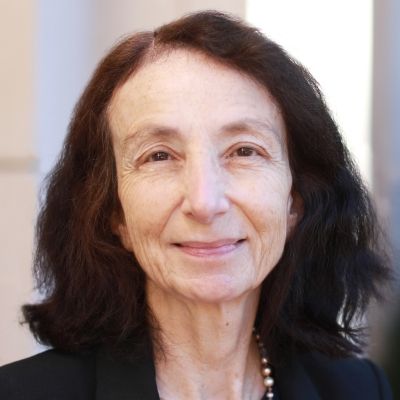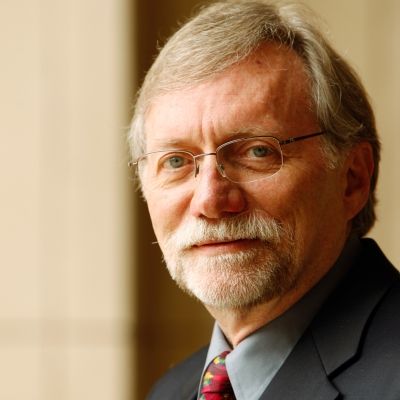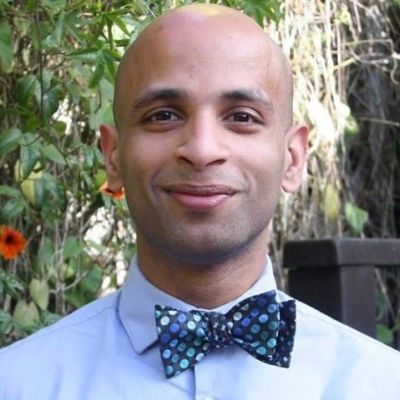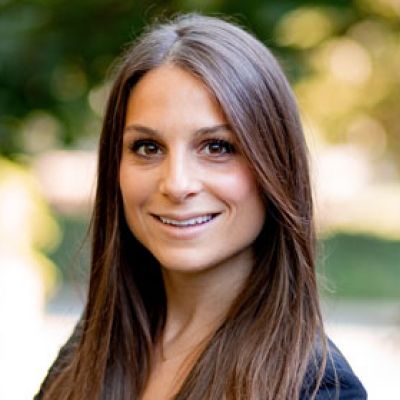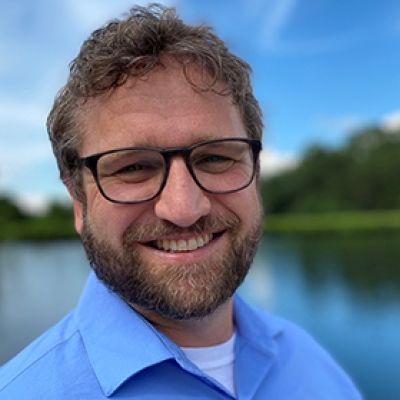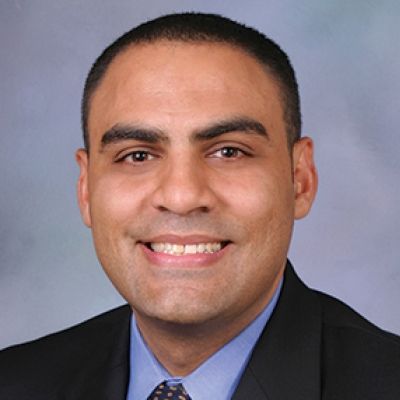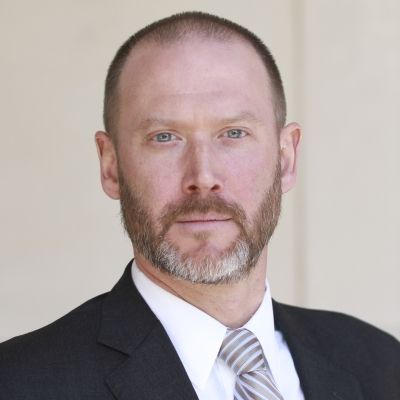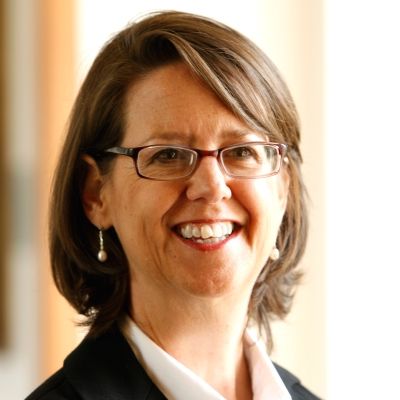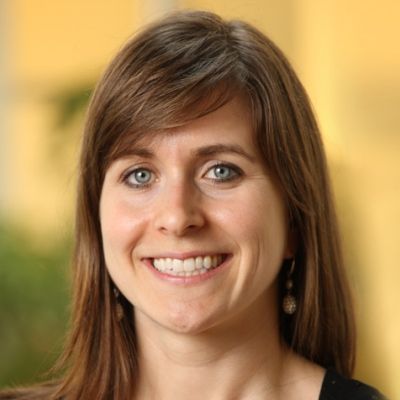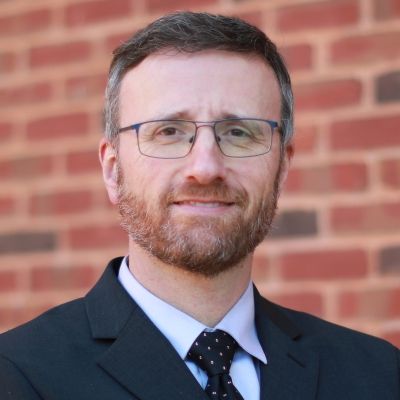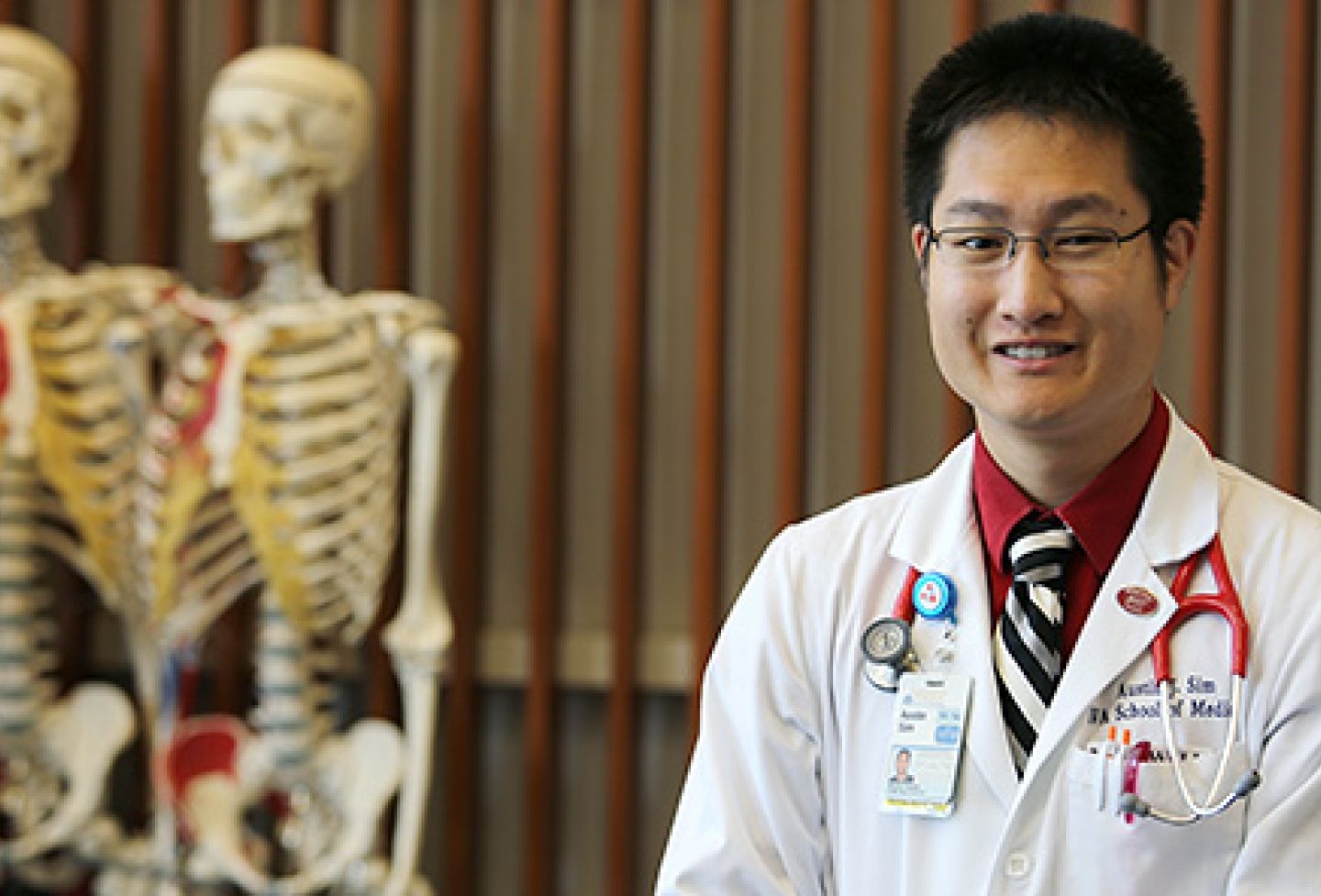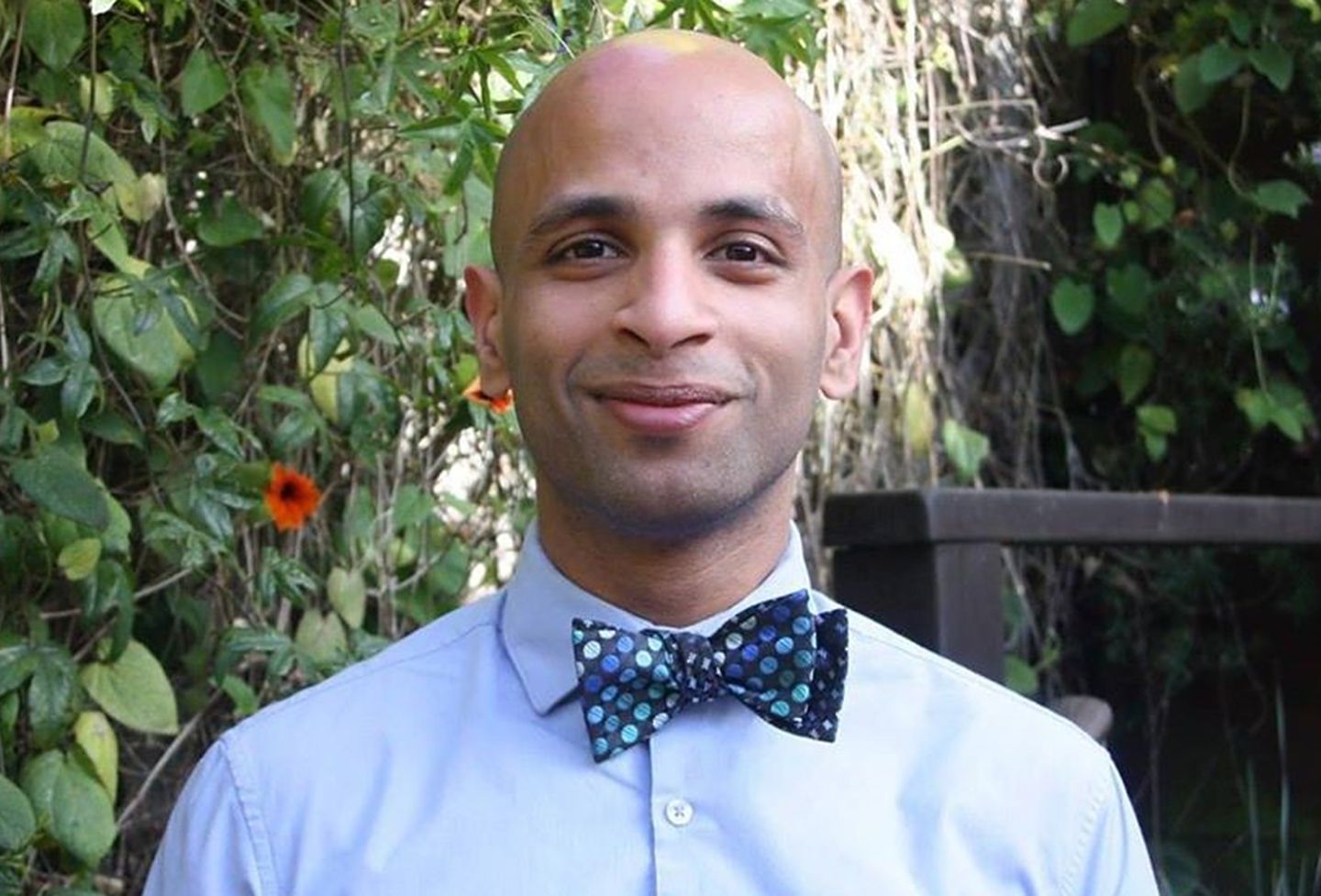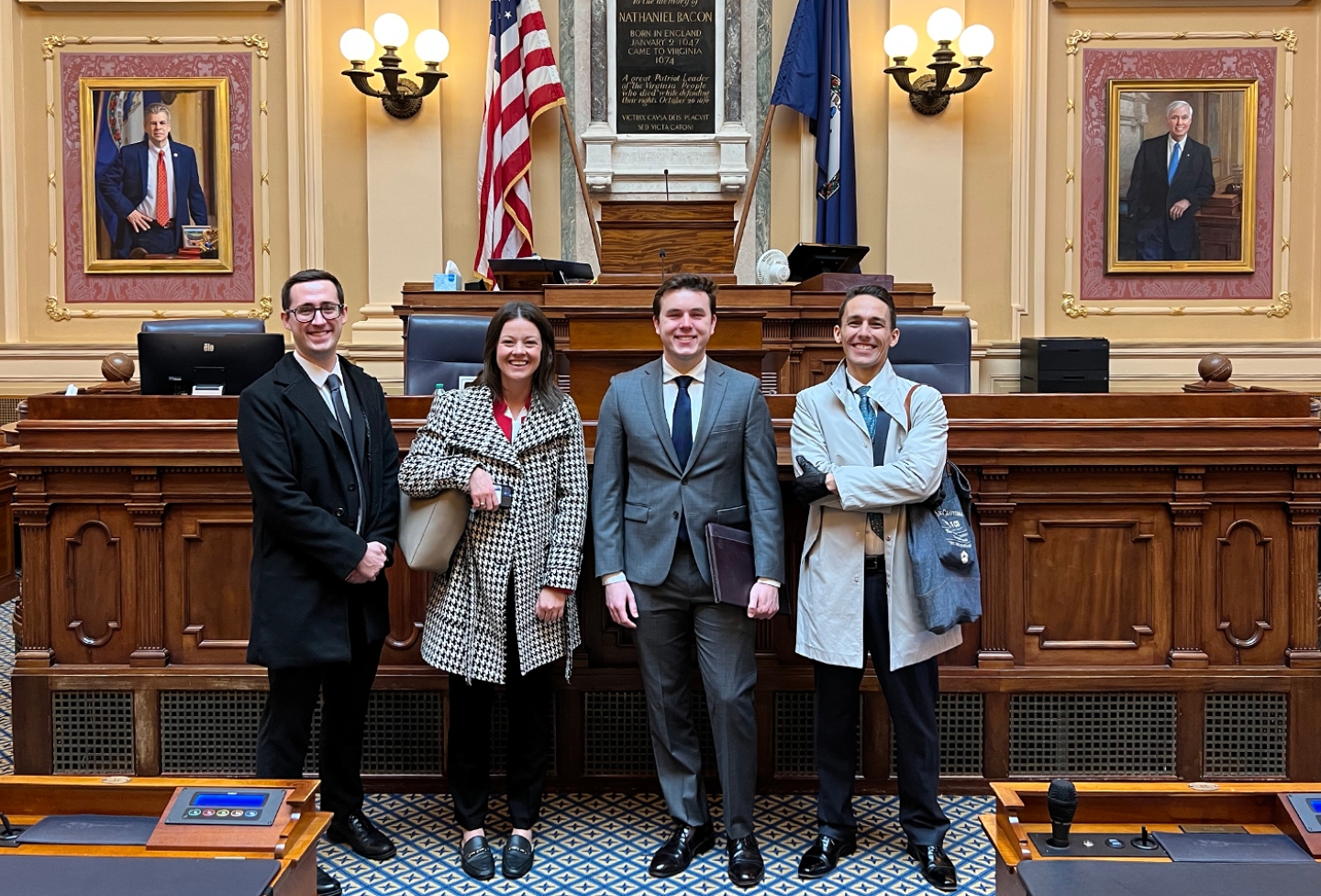About the Program
The distinguishing feature of the Law School’s program in health law is its collaboration with the University’s School of Medicine and its Medical Center, which is consistently ranked among the nation’s top hospitals. At Virginia, law students can study health law in the clinical setting, interacting with medical students and physicians from all medical specialties, including pediatrics, neurology, internal medicine (infectious disease and geriatrics) and psychiatry. Law faculty teach in the School of Medicine and Medical School professors teach Law School classes. This collaboration extends to health policy experts in the Batten School of Leadership and Public Policy, the Darden School of Business and the Schools of Architecture, Arts & Sciences, Engineering and Nursing. Students benefit from viewing the regulatory context through the eyes of physicians, inventors, health care administrators and experts from a variety of fields.
This interdisciplinary approach is further borne out through institutes and centers at UVA that allow students to study and work on pressing issues in health care, biotechnology, research, genetics and moral philosophy:
- Institute of Law, Psychiatry and Public Policy
- Virginia Center for Translational and Regulatory Sciences
- Institute for Practical Ethics and Public Life
- Center for Biomedical Ethics
- Center for Health Policy
- Center for Global Health
- Institute on Aging
J.D.-M.P.H. (Public Health) Program
In conjunction with the Department of Public Health Sciences at the School of Medicine, the Law School offers a dual degree in public health through a program directed by Professors Ruth Gaare Bernheim and Richard Bonnie. Students have access to graduate courses in health policy and management, health economics, ethics, global health, social and behavioral health, environmental health and research methodology. Instituted in 2003, the M.P.H. program offers concentrations in generalist practice and research, health policy, and law and ethics, and includes field placement options in global health, health policy and public health sites. The program takes four years to complete and requires a minimum of 116 credits. More
J.D.-M.D. Program
Designed to educate the next generation of health leaders, the J.D.-M.D. program allows students to complete law and medical degrees in six years, instead of the seven years normally required if the degrees were pursued separately. Students spend the first three years and the summer of year five in classes at the School of Medicine, and years four and five at the Law School. In the final year, one semester is spent in each school. Students are required to secure admission separately to the School of Medicine and UVA Law through the normal admissions processes of the two schools. More
Clinic
Students in the yearlong Health and Disability Law Clinic help represent mentally ill and elderly clients in negotiations, administrative hearings and court proceedings. The legal matters may involve civil rights, mental health care in jails and prisons, disability benefits claims, access to health or rehabilitative services, creating wills and other testamentary documents, and advance directives.
Fellowships and Externships
Students may apply for funding from the Law School’s health law fellowship program to work in a variety of settings. Students have worked for employers such as the Centers for Disease Control and Prevention’s Public Health Law Program and the Food and Drug Administration.
Health Law Contacts
Professor Richard Bonnie
Professor Ruth Gaare Bernheim
Professor Margaret Foster Riley
Gradualism should have won out in Dobbs v. Jackson Women’s Health, exerting gravitational influence on the majority and dissenters alike. In general...
Hot Flash: How Understanding Menopause Can Improve Life and Law for Everyone dissolves the silence and stigma surrounding menopause. The book frames...
During times of crisis, governments often consider policies that may promote safety, but that would require overstepping constitutionally protected...
Sonia M. Suter
This essay explores the regulation of sperm donation from a reproductive justice perspective. It compares formal sperm donation, which involves...
The SEC mandates that public companies assess new information that changes the risks that they face and disclose these if there has been a “material”...
Philosophers have debated whether the advance directives of Alzheimer’s patients should be enforced, even if patients seem content in their demented...
More
Faculty Director(s)
Margaret Foster Riley
Professor of Law, General Faculty
Dorothy Danforth Compton Professor, Miller Center
Professor of Public Health Sciences, School of Medicine
Professor of Public Policy, Batten School of Leadership and Public Policy
Director, Animal Law Program
Gradualism should have won out in Dobbs v. Jackson Women’s Health, exerting gravitational influence on the majority and dissenters alike. In general...
Hot Flash: How Understanding Menopause Can Improve Life and Law for Everyone dissolves the silence and stigma surrounding menopause. The book frames...
During times of crisis, governments often consider policies that may promote safety, but that would require overstepping constitutionally protected...
Sonia M. Suter
This essay explores the regulation of sperm donation from a reproductive justice perspective. It compares formal sperm donation, which involves...
The SEC mandates that public companies assess new information that changes the risks that they face and disclose these if there has been a “material”...
Philosophers have debated whether the advance directives of Alzheimer’s patients should be enforced, even if patients seem content in their demented...
More
Now that the Supreme Court has revoked the constitutional right to reproductive autonomy, we must reckon with the risks that our surveillance economy...
In August of 2021, the American Society for Reproductive Medicine published its most recent opinion on the financial compensation of oocyte (egg)...
More
In this Foreword, I lay out the case for intimate privacy—what it is, why it is in jeopardy, and how we can fight to get it back, if we try...
The Political Language of Parental Rights: Abortion, Gender-Affirming Care, and Critical Race Theory
This Article explores how the rhetoric of parental rights has been deployed to override minors’ access to abortion, gender-affirming care, and...
June Carbone
The Article uncovers the hidden framework for the Supreme Court’s approach to public values, a framework that has shaped – and will continue to shape...
More
A Forum discussing:
Kidneys for Sale: Empirical Evidence From Iran by Moeindarbari T and Feizi M (2022). Transpl Int 35:10178. doi: https://doi.org...
As this Essay shows, the fertility discourse of the last half century deals with the profound effects that come from the transformation of the economy...
More
Does the U.S. Constitution guarantee a right to a vaccine passport? In the United States and elsewhere, vaccine passports have existed for over a...
Heather Walter McCabe
This chapter "rewrites" Smith v. Rasmussen, 249 F.3d 755 (8th Cir. 2001), which affirmed Iowa’s Medicaid agency's refusal to cover gender affirmation...
Sonia M. Suter
This article examines the technologies of pre-implantation genetic testing (PGT) and germline gene editing (GGE) and the different potential...
There are over thirty million people ages 44 to 55 in the civilian labor force in the United States, but the law and legal scholarship are largely...
This Essay explores how menopausal bodies are managed and monitored through both menopausal hormone therapy (MHT) and the burgeoning market for...
“It is horrendous, but then it’s magnificent,” says one character about menopause in an episode of the 2019 Netflix comedy Fleabag. Her younger...
More
The sale of organs and gametes, the use of commercial surrogates, and trade in blood and plasma are examples of what have been termed "contested...
Kate M. Nicholson
The COVID-19 pandemic and the unprecedented natural disasters of 2020 remind us of the importance of emergency preparedness. This Article contributes...
Menopause is defined by its relationship to menstruation––it is the cessation of menstruation. Medical texts identify menopause as part of the cycle...
Linda C. McClain
Gendered inequalities are on the frontlines of COVID-19. The catalogue of COVID-19’s impact covers all aspects of women's lives: work, family...
Kate M. Nicholson
Clustered Regularly Interspaced Short Palindromic Repeat Associated System (CRISPR-Cas9) is evolving as a multi-faceted technology that can help in...
Philip J. Cook
In "Consentability," Nancy Kim tackles an important and current topic—in an age of increasing options about how to live, die, and procreate, what...
In the last several decades, individuals have advanced civil rights claims that rely on the language of medicine. This Article is the first to define...
Health data regulation can be thought of at two levels. First, the micro- level of regulation has to do with Electronic Health Records (EHRs). Second...
This paper explores a series of thought experiments that postulate the existence of “artificially intelligent law.” An artificially-intelligent legal...
There is no single cause of America’s opioid crisis. But unethical physicians and unscrupulous prescription practices undoubtedly have contributed...
Market design and matching have been especially important for markets in which the use of money is viewed as repugnant or distasteful. This article...
Drugs often induce unintended, adverse physiological reactions in those that take them—what we commonly refer to as “side-effects.” However, drugs can...
This keynote contains three parts. Part I addresses the intersection of two metaphors: medicine and childhood in LGBT Rights. Part II addresses the...
Implantable medical devices measure and record data about the physiological development in a patient’s body, and communicate the data wirelessly to a...
More
Recent breakthroughs have moved heritable human genetic modification from the realm of science fiction to the cusp of reality, lending urgency to...
There is, without question, a public health crisis in the United States arising from both illicit and prescription opioid misuse, addiction, and...
Philip J. Cook
We contrast the compensation ban on organ donation with the legal treatment of football, boxing, and other violent sports where both acute and chronic...
Philip J. Cook
Ethicists who oppose compensating kidney donors claim they do so because kidney donation is risky for the donor’s health, donors may not appreciate...
Today, patients emanate increasing quantities of health information. However, not all health data are created equal. Questions regarding technology...
Objective: This research examined the frequency of and characteristics associated with three forms of violence among persons with mental illness...
June Carbone
In this article, we contrast the roles of intent, function, biology and marriage in establishing legal parenthood, focusing on differences between...
In Sperm donor anonymity and compensation: an experiment with American sperm donors, the authors contribute to our knowledge about the impact of...
Stephen J. Choi
Variation exists in how death examinations take place in the United States. In some counties and states decisions about autopsies and the issuance...
We analyze a new transplant innovation — Advanced Donation, referred to by some as a kidney “gift certificate,” “layaway plan,” or “voucher — as a...
Kieran Healy
Researchers have made progress in understanding the role of repugnance in transactions involving the human body. Yet, often, the focus remains on...
Whatever the shape of the information network, collection imposes special burdens on the patients who are the subject of the information and who form...
A small group of individuals with mental illness is repeatedly involved in violence. Little is known about how often and how consistently these high...
This article seeks to illustrate egg donation's incompletely commodified status through an analysis of two cases of first impression, highlighting...
Secondary health information research requires vast quantities of data in order to make clinical and health delivery breakthroughs. Restrictive...
Highly publicized incidents in which people with apparent mental illnesses use guns to victimize strangers have important implications for public...
Students of markets from all disciplines are increasingly turning their attention to the cultural and psychological factors that affect market...
Richard L. Revesz
Under the Clean Air Act, the U.S. Environmental Protection Agency (EPA) is required to determine the stringency of the National Ambient Air Quality...
Not enough kidneys are donated each year to satisfy the demand from patients who need them. Strong moral and legal norms interfere with market-based...
Philip J. Cook
Kidneys are unique among the solid organs due to the combination of the low risk of living donation, the feasibility of sustaining life on dialysis...
In April 2011, Lindsay Kamakahi caused an international stir by suing the American Society for Reproductive Medicine (ASRM), the Society for Assisted...
Michael A. Rees
In this article, we propose a novel form of kidney swap, which we label “Reverse Transplant Tourism.” This proposal has the potential to increase...
June Carbone
This article evaluates the relationship between workplace equality and the technology of egg freezing, which allows women to “bank” their eggs until...
The conflict of interest created when physician-researchers combine medical research and treatment is a long-standing and widely recognized ethical...
Kieran Healy
In this Essay, we examine a case in which the organizational and logistical demands of a novel form of organ exchange (the nonsimultaneous, extended...
Genetically engineered plants and animals have become a large part of the food we consume. The United States is the world’s largest producer of...
Objective: This study examined interventions used by colleges to respond to students who appear to be experiencing mental health crises.
...
Jennifer L. Skeem
A variety of instruments have been published over recent years that improve clinicians’ ability to forecast the likelihood that an individual will...
What explains controversy over outpatient commitment laws (OCLs), which authorize courts to order persons with mental illness to accept outpatient...
June Carbone
The battle for the future of assisted reproduction technologies (ART) has been joined. The tacit compromise underlying assisted reproduction - no laws...
This book focuses on the dilemmas of applying conflicting values to egg and sperm donation, arguing that the law must develop an integrated approach...
This article calls for setting limits on the number of offspring born from any one individual's gametes, and for continuing to sanction incest, even...
The “Option of Adoption Act,” a Georgia law that was introduced by a staunchly anti-abortion Georgia state representative, establishes procedures for...
This brief article calls for a mandatory national donor gamete registry. It first discusses the history of secrecy in the adoption context before...
June Carbone
In this paper, we will incorporate gender consciousness into critiques of the rational actor model by revisiting Carol Gilligan's account of moral...
This Article considers the market structure of the human egg (or “oocyte”) donation business, particularly the presence of anti-competitive behavior...
Thanks to the “Octomom” - a single, low-income, California mother of six, who recently gave birth to octuplets conceived through IVF - the American...
In an article for a symposium issue of the Cincinnati Law Review on the thirtieth anniversary of the Tarasoff decision, finding therapists potentially...
June Carbone
Understanding the biological roots of intimate behavior is a complex undertaking that involves the integration of evolutionary biology, evolutionary...
A lively debate has raged in recent years about how to regulate employment reference practices. According to the conventional account, employers...
June Carbone
This article addresses the role of the genetic tie in the parent-child relationship through three lenses. First, we argue that the legal system...
In PGA Tour, Inc. v. Casey Martin, the Supreme Court of the United States upheld the right of the professional golfer Casey Martin to use a golf cart...
This Article proposes a solution to resolve the legal issues that arise from the disposition of eggs, zygotes, and sperm upon divorce or death. I...
This essay focuses on the relationships between children, unknown donors, and biological parents. It argues that children deserve access to...
Resident Faculty
Resident Faculty
Psychiatry and criminal law, mental health law, bioethics, public health
Family law, trusts and estates, feminist jurisprudence, reproductive technology, and aging and the law
Social science in law, mental health law, forensic psychiatry
Food and drug law, health law, animal law
Health policy, LGBTQ rights
Securities, corporate and derivatives law, taboo markets
Other Faculty
Health law and bioethics
J.D.-M.P.H. and J.D.-M.D.
Instituted in 2003 by the School of Law, the School of Medicine and the Graduate School of Arts and Sciences, the dual degree in public health, offered in conjunction with the Department of Public Health Sciences, offers concentrations in generalist practice and research and in health policy, law and ethics. The M.P.H. program features close collaboration with the federal Centers for Disease Control and with state and local public health offices in Virginia.
Administration of the Program
The program is administered by a Program Committee, consisting of one or more members of the Law faculty appointed by the Dean of the School of Law, one or more members of the faculty of the Graduate School of Arts and Sciences appointed by the Dean of the Graduate Faculties, and one or more members of the faculty of the School of Medicine appointed by the Dean of the School of Medicine.
Admission to the Program
The student is required to secure admission separately to the Graduate School of Arts and Sciences and the School of Law through the normal admissions processes of the two schools. The applicant will be held to the same standards as any other applicant, and the fact that s/he is a candidate for the dual-degree program will not be considered in the admissions process. Once admitted to the two schools, the student may apply for admission to the dual-degree program. Students may seek admission to the Graduate School and initiate the dual-degree program after matriculating in the School of Law. Graduate Admissions | Law School Admissions
Curriculum
The J.D.-M.P.H. program takes four years to complete and requires a minimum of 116 credits. In effect, the program consists of the complete first-year program at the School of Law and at least three years of courses taken from the curricula of the two schools and, when appropriate, from other graduate offerings at the University. The student is required to meet all of the requirements set by the respective Schools for the award of both the J.D. and M.P.H. degrees. In the School of Law, this means the student must complete the required curriculum, meet minimum academic standards, and earn a minimum of 86 credits and six residency semesters in the School of Law. In the Graduate School of Arts and Sciences, minimum requirements for the M.P.H. degree include two residency semesters; 42 credits in an approved program, including at least 30 course credits; and completion of a six-credit thesis under the supervision of a faculty advisor. NOTE: In accordance with ABA standards, J.D. degree candidates may not enroll in more than 17 credits total in any semester.
With the approval of a School of Law representative on the Program Committee, a student may receive up to 12 of the 86 credits required for the J.D. degree in appropriate graduate-level work in the Graduate School of Arts and Sciences or other departments at the University. In all cases, the School of Law representative must approve credit for any course taken outside the School of Law to be applied towards the J.D. degree before the student enrolls in the course. NOTE: Credit towards the J.D. degree cannot be granted for course work completed prior to matriculation at the School of Law. Similarly, with the approval of the M.P.H. program director and the associate dean for graduate programs in the Graduate School of Arts and Sciences, a student may receive up to 9 of the 42 credits required for the M.P.H. degree in appropriate work in the School of Law. No student, however, may have more than 12 credits applied toward both degrees.
Change of Status
At any point in the program, the student may terminate plans for the dual degree program and continue towards a single degree at either school. The student then must satisfy the normal requirements of the school elected, which may include credits completed in the other school, as determined by the appropriate officials.
Financial Aid
Financial aid will be provided by the school to which the student is paying tuition in a given semester. Financial aid is not guaranteed and is subject to individual school and University regulations and availability. Students must meet the satisfactory academic progress standards of the school providing the financial aid in a given semester.
Tuition and Fees
J.D. degree candidates must complete six residency semesters in the School of Law and pay School of Law tuition and fees. For any semester in which a student is in full-time residence in the Department of Public Health Sciences, the student must pay tuition and fees as a regular student in that department.
Extracurricular Activities
Students are eligible to participate in the extracurricular activities of both schools to the extent that time permits, but should be alert to the possibility of over-commitment.
Grading Standards
Students are required to meet the grading standards of both schools independently to remain in good standing. Each school retains the right to drop students from its degree program following its usual academic standards and procedures. Course grades will be recorded on the student’s transcript in accordance with the grading system in effect at the school in which the course is offered.
For More Information Contact the Law School faculty advisor, Professor Richard J. Bonnie.
J.D.-M.D. Program
Designed to educate the next generation of health leaders, the J.D.-M.D. program allows students to complete law and medical degrees in six years, instead of the seven years normally required if the degrees were pursued separately. Students spend the first three years and the summer of year five in classes at the School of Medicine, and years four and five at the Law School. In the final year, one semester is spent in each school. Students are required to secure admission separately to the School of Medicine and UVA Law through the normal admissions processes of the two schools. More
The University of Virginia will offer a new dual-degree option, the J.D.-M.D. , starting this fall. The program, a partnership between the School of Law and the School of Medicine, is one of 15 dual degrees offered at UVA Law and joins the J.D.-M.P.H. program to become the second joint degree the
University of California, Berkeley professor Jennifer Skeem discusses empirical guidance for shifting programs and practices to improve outcomes for high-need, high-risk populations involved in the justice system. Skeem’s talk was the 18th P. Browning Hoffman Memorial Lecture in Law and Psychiatry, sponsored by the Institute of Law, Psychiatry and Public Policy, and the University’s schools of Law and Medicine. UVA Law professors Richard Bonnie ’69 and John Monahan introduce the event.
Courses and Seminars
The following is a list of courses offered during 2021-24. Numbers in parentheses indicate which academic year(s) the courses were offered, i.e., 2021-22 is coded (22), 2022-23 is coded (23) and 2023-24 is coded (24). (SC) stands for short course and (YR) stands for yearlong.
Advanced LawTech (22)
After Dobbs (SC) (23)
American Food Governance (22)
Bioethics And Law Internship Seminar: Health Policy and Administration (22,23,24)
Bioethics and the Law Seminar (22,24)
Cannabis Legalization (SC) (24)
Covid and Contracts: Courts, Regulation and Drafting (SC) (22)
Current Topics in Law, Medicine and Society (SC) (22,23,24)
Disability Law (22,24)
Drug Product Liability Litigation Seminar (22,23,24)
Drug Product Liability Litigation: Principles and Practice (22,23,24)
Exercises in Rulemaking: Society, Technology and the Law (SC) (22)
Food and Drug Law (22,24)
Food Systems Law and Policy (23)
Genetics and the Law (SC) (22,24)
Genetics and the Law: Exercises in Rulemaking (SC) (23)
Health Care Marketplace: Competition, Regulation and Reform (SC) (23)
Health Law Survey (23,24)
Law and Ethics of Biotechnology (23)
Law and the Social Determinants of Health (24)
Lessons From COVID-19 (22)
Medicalization and the Law (22,23)
Mental Health Law (24)
New Frontiers in Neuroethics and Law (SC) (22)
Reproductive Ethics and Law (SC) (22,23,24)
Reproductive Rights and Justice (24)
Ten-Year Checkup of the Affordable Care Act (24)
After Dobbs (SC) (23)
American Food Governance (22)
Bioethics And Law Internship Seminar: Health Policy and Administration (22,23,24)
Bioethics and the Law Seminar (22,24)
Cannabis Legalization (SC) (24)
Covid and Contracts: Courts, Regulation and Drafting (SC) (22)
Current Topics in Law, Medicine and Society (SC) (22,23,24)
Disability Law (22,24)
Drug Product Liability Litigation Seminar (22,23,24)
Drug Product Liability Litigation: Principles and Practice (22,23,24)
Exercises in Rulemaking: Society, Technology and the Law (SC) (22)
Food and Drug Law (22,24)
Food Systems Law and Policy (23)
Genetics and the Law (SC) (22,24)
Genetics and the Law: Exercises in Rulemaking (SC) (23)
Health Care Marketplace: Competition, Regulation and Reform (SC) (23)
Health Law Survey (23,24)
Law and Ethics of Biotechnology (23)
Law and the Social Determinants of Health (24)
Lessons From COVID-19 (22)
Medicalization and the Law (22,23)
Mental Health Law (24)
New Frontiers in Neuroethics and Law (SC) (22)
Reproductive Ethics and Law (SC) (22,23,24)
Reproductive Rights and Justice (24)
Ten-Year Checkup of the Affordable Care Act (24)
Clinics
Civil Rights Clinic (YR) (22,23,24)
Health and Disability Law Clinic (YR) (22,23,24)
A National Academies committee chaired by University of Virginia School of Law professor Margaret Foster Riley released a report that recommended including pregnant and lactating women in clinical research. The news is among other achievements and recognition for members of the Law School community.
As the world battles the novel coronavirus, University of Virginia history professor Christian McMillen discusses what lessons we can learn — and improve upon — from past pandemics.
Centers and Organizations
Student Organization
Health Law Association
The Health Law Association is open to all law, LL.M., medical, graduate and undergraduate students. The group sponsors speakers and seminars in the health law field throughout the year and organizes social activities with medical and other graduate students. More information is available here.
Research Project
MacArthur Violence Risk Assessment Study
The public perception that mental disorder is strongly associated with violence drives both legal policy (e.g., civil commitment) and social practice (e.g., stigma) toward people with mental disorders. This study describes and characterizes the prevalence of community violence in a sample of people recently discharged from acute psychiatric facilities at three sites.
UVA Organizations
Department of Public Health Sciences
By assembling a multidisciplinary team and combining the expertise of the basic clinical sciences of biostatistics, clinical epidemiology, health services research, and informatics, the Department aims to provide a better understanding of the relationships among biologic discoveries, patient and population characteristics, treatment options, public health interventions, systems, and outcomes.
Center for Biomedical Ethics
The Center's mission is to advance education, research, and service concerning moral values in health care. The Center's faculty works both individually and in research teams on problems in clinical ethics, the ethics of research involving human subjects, ethics and genetics, health care organization ethics, and the history of bioethics.
Center for Global Health
The Center cultivates and promotes interdisciplinary activities to support Global Health that involve the collaboration of departments, centers, as well as professionals and students from across the university. The Center is dedicated to alleviating diseases of poverty.
Institute on Aging
The Institute aims to enrich the lives of those who are old today and those who will be old tomorrow by acting as a catalyst and coordinator for interdisciplinary research, education, and service programs within the University.
Institute of Law, Psychiatry and Public Policy
The Institute offers training, educational, research, and service programs in the areas of forensic psychiatry, forensic psychology, and mental health law. Affiliated with the University's Law School, School of Medicine, and its College of Arts & Sciences, the Institute has an interdisciplinary faculty of attorneys, psychiatrists, psychologists, and social workers. Its Forensic Psychiatry Clinic performs clinical evaluations in a wide variety of civil and criminal cases. The Institute conducts training programs for the Virginia Department of Mental Health, Mental Retardation, and Substance Abuse Services and provides continuing education for attorneys and judges. The institute also conducts extensive empirical and theoretical research in clinical criminology, forensic psychiatry/psychology, and mental health law and policy.
Institute for Practical Ethics and Public Life
The Institute fosters scholarship, education, and research in practical ethics. To this end, the Institute provides an intellectual home for faculty and students from across the University who wish to pursue interdisciplinary scholarship, research, and teaching on the complex ethical issues that underline contemporary professions, organizations, and public policy. Additionally, the Institute aims to connect, create and support programs in practical ethics throughout the University and thus create a model for ethics as an integral part of undergraduate, graduate, and professional education.
Center on Health Disparities
The Center focuses on interdisciplinary and multi-institutional research and interventions to reduce health disparities.
School of Medicine
The School of Medicine is a nationally recognized, medium-sized school with balanced programs of undergraduate and graduate medical education and with biomedical research programs nationally recognized for their stature and productivity. Law students have the opportunity to interact with faculty, residents, and students from many departments in the medical school, including the Department of Public Health Sciences and the Center for Global Health.
Professor Craig Konnoth of the University of Virginia School of Law will research bioethics in movement advocacy as a 2024 Greenwall Faculty Scholar.
UVA Law alumni in leading health-related industries discuss the impact of COVID-19 and the unique challenges presented by the pandemic. The panelists are Thomas Moriarty ’89, CVS Health; Sandy van der Vaart ’93, LabCorp; Michael McAlevey ’89, GE Healthcare; and Michael Lampert ’03, Ropes & Gray, with an introduction by Dean Risa Goluboff. This event was sponsored by the Health Law Association and the Virginia Journal of Law & Technology.
Event Sponsors and Lecture Series
UVA Forum on Health Law and Policy
The Forum gives faculty and students from the Schools of Law and Medicine (and elsewhere in the University) the chance to present works in progress.
Sadie Lewis Webb Program in Law and Biomedicine/Health Policy Lecture Series
Established by Earl "Duke" Collier, Law Class of 1973 in 2002 in honor of his grandmother, the Program sponsors the Sadie Lewis Webb Visiting Scholar, faculty workshops, scholarly lunch discussions, informal seminars, medical center hour presentations and symposium on health, human rights and ethics. The inaugural visitor was Dr. Albert Jonsen in October 2002 and Alta Charo in January and March of 2004. More
P. Browning Hoffman Memorial Lecture
The P. Browning Hoffman Memorial Lecture in Law and Psychiatry was established by the University of Virginia School of Law as a tribute to the life and work of P. Browning Hoffman, who held joint appointments as Professor of Law and Professor of Psychiatry at the University of Virginia, and was the founding director of the Institute of Law, Psychiatry, and Public Policy.
Previous Lecturers
- Jeffrey Swanson, Ph.D., Duke University
- Alan Stone, M.D., Harvard University
- Seymour Halleck, M.D., University of North Carolina, Chapel Hill
- Norval Morris, L.L.B., L.L.M., Ph.D., University of Chicago
- Loren Roth, M.D., M.P.H., University of Pittsburgh School of Medicine
- Paul S. Appelbaum, M.D., University of Massachusetts Medical School
- Tom Grisso, Ph.D., University of Massachusetts Medical School
- John Gunn, M.D. University of London
- Robert A. Burt, M.A., J.D. Yale University
- Semyon Gluzman, M.D., Ukrainian Psychiatric Association
- 2003 Stephen J. Morse of the University of Pennsylvania Law School
Clinic students at the University of Virginia School of Law worked with state lawmakers to draft bills on mental health and education, which were recently signed into law.
A panel of activists and scholars discuss how neighborhood zoning policies, uneven environmental protection rules and “proactive” police enforcement can negatively affect health outcomes in minority communities. The panel featured Vernice Miller-Travis, executive vice president of Metropolitan Group; Marianne Engelman-Lado, a lecturer at Yale and a visiting professor at Vermont Law School; and Jeffrey A. Fagan, a Columbia Law School professor. David Toscano ’86, a former delegate and minority leader of the Virginia House of Delegates, served as moderator. This panel was part of the symposium “Healing Hate: A Public Health Perspective on Civil Rights in America,” hosted by the University of Virginia Schools of Law, Medicine and Nursing.
